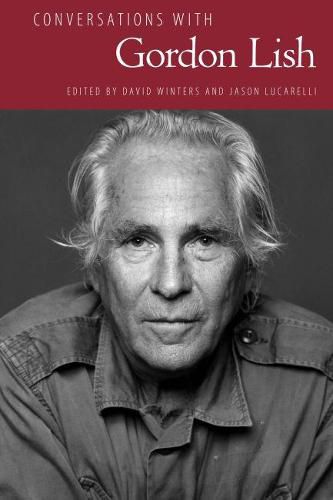Readings Newsletter
Become a Readings Member to make your shopping experience even easier.
Sign in or sign up for free!
You’re not far away from qualifying for FREE standard shipping within Australia
You’ve qualified for FREE standard shipping within Australia
The cart is loading…






This title is printed to order. This book may have been self-published. If so, we cannot guarantee the quality of the content. In the main most books will have gone through the editing process however some may not. We therefore suggest that you be aware of this before ordering this book. If in doubt check either the author or publisher’s details as we are unable to accept any returns unless they are faulty. Please contact us if you have any questions.
Known as
Captain Fiction,
Gordon Lish (b. 1934) is among the most influential–and controversial–figures in modern American letters. As an editor at Esquire (1969-1977), Alfred A. Knopf (1977-1995), and The Quarterly (1987-1995) and as a teacher both in and outside the university system, he has worked closely with many of the most pioneering writers of recent times, including Raymond Carver, Don DeLillo, Barry Hannah, Amy Hempel, Sam Lipsyte, and Ben Marcus. A prolific author of stories and novels, Lish has also won a cult following for his own fiction, earning comparisons with Gertrude Stein and Samuel Beckett. Conversations with Gordon Lish collects all of Lish’s major interviews, covering the entire span of his extraordinary career. Ranging from 1965 to 2015, these interviews document his pivotal role in the period’s defining developments: the impact of the Californian counterculture, the rise and decline of so-called literary
minimalism,
dramatic transformations in book and magazine publishing, and the ongoing growth of creative writing instruction. Over time, Lish–a self-described
dynamic conversationalist – forges an evolving conversation not only with his interviewers, but with the central trends of twentieth-century literary history. This book will be essential reading not only for students and fans of contemporary fiction, but for writers too: included are several interviews in which Lish discusses his legendary writing classes. Indeed, these pieces themselves amount to a masterclass in Lishian literary language–each is a work of art in its own right.
$9.00 standard shipping within Australia
FREE standard shipping within Australia for orders over $100.00
Express & International shipping calculated at checkout
This title is printed to order. This book may have been self-published. If so, we cannot guarantee the quality of the content. In the main most books will have gone through the editing process however some may not. We therefore suggest that you be aware of this before ordering this book. If in doubt check either the author or publisher’s details as we are unable to accept any returns unless they are faulty. Please contact us if you have any questions.
Known as
Captain Fiction,
Gordon Lish (b. 1934) is among the most influential–and controversial–figures in modern American letters. As an editor at Esquire (1969-1977), Alfred A. Knopf (1977-1995), and The Quarterly (1987-1995) and as a teacher both in and outside the university system, he has worked closely with many of the most pioneering writers of recent times, including Raymond Carver, Don DeLillo, Barry Hannah, Amy Hempel, Sam Lipsyte, and Ben Marcus. A prolific author of stories and novels, Lish has also won a cult following for his own fiction, earning comparisons with Gertrude Stein and Samuel Beckett. Conversations with Gordon Lish collects all of Lish’s major interviews, covering the entire span of his extraordinary career. Ranging from 1965 to 2015, these interviews document his pivotal role in the period’s defining developments: the impact of the Californian counterculture, the rise and decline of so-called literary
minimalism,
dramatic transformations in book and magazine publishing, and the ongoing growth of creative writing instruction. Over time, Lish–a self-described
dynamic conversationalist – forges an evolving conversation not only with his interviewers, but with the central trends of twentieth-century literary history. This book will be essential reading not only for students and fans of contemporary fiction, but for writers too: included are several interviews in which Lish discusses his legendary writing classes. Indeed, these pieces themselves amount to a masterclass in Lishian literary language–each is a work of art in its own right.